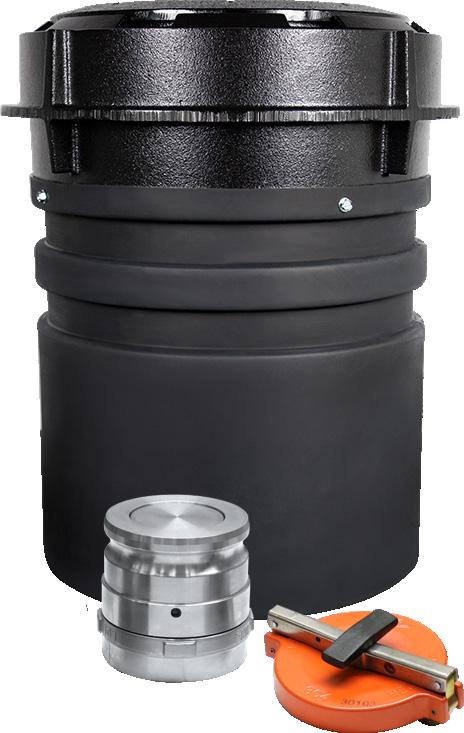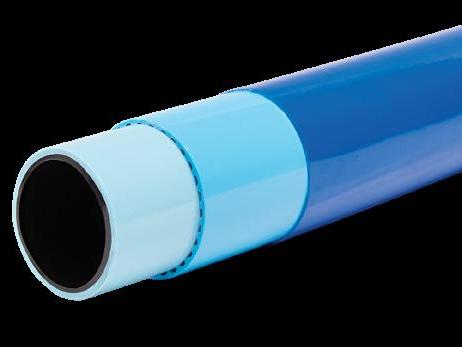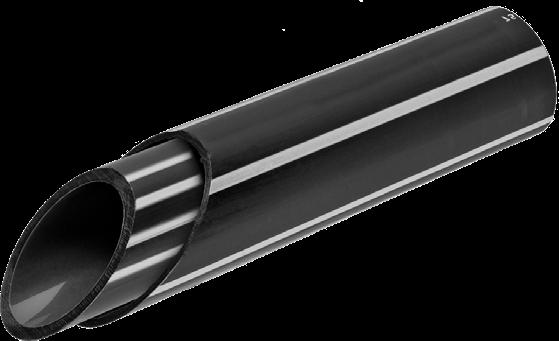
6 minute read
GOVERNMENT POLICY UPDATE
GOVERNMENT POLICY HIGHLIGHTS
This latest feature of the newsletter will be published monthly. The update serves as a recap and reference point for our members regarding the latest policy impacts on the energy market. We will continue to monitor and communicate any policy changes directly to members as they happen. The updates below are for the period beginning June 1 and ending June 28, 2021.
Advertisement
WHAT'S NEW? FEDERALLY
Call for Proposals under $1.5-billion clean fuels fund to grow clean fuels market across Canada
• The Government of Canada is building a low emissions energy future to strengthen the economy, create good, middle-class jobs and support workers in our natural resource sectors. Producing and using cleaner fuels in our buildings, vehicles and industries is a key step to exceeding our 2030 climate target and reaching net-zero by 2050. On June 21, the Honourable Seamus O’Regan Jr., Minister of Natural Resources, officially launched the $1.5-billion Clean Fuels Fund with a call for proposals for projects that increase Canada’s capacity to produce clean fuels.
Eligible projects include: • Capital clean fuel production projects that use fuel production technologies in advanced stages of technological readiness and that are designed for commercial deployment
• Feasibility studies, basic engineering studies and detailed front-end engineering studies to assess the new build or expansion of low carbon fuel production facilities. In addition, feasibility studies to assess the techno-economic feasibility of blending hydrogen into natural gas systems.
Submissions can be made beginning June 21, 2021 with the deadline set for September 29, 2021. Details on the submission process can be found here: • Application Guide • Application Form
Zero-Emission Vehicle Infrastructure Program (ZEVIP) now accepting project proposals
• Stream A of this Canadian Department of Natural
Resources (NRCan) RFP targets direct recipients with a special ZEV infrastructure project for onroad and off-road commercial and public fleets.
Stream B of this RFP targets provincial, territorial, regional or municipal governments, their institutions, agencies, and Crown corporations (including public utilities) and not-for-profit organizations validly incorporated or registered in Canada that can help deliver a component of the ZEVIP funding for EV infrastructure projects for on-road and off-road commercial and public fleets.
• Eligibility and application details can be found here: NRCan website and online form.
• Deadline for submission: Completed project proposals may be submitted via email or sent to NRCan by courier. All bids must be received no later than September 8, 2021 (23:59 Eastern
Daylight Time).
Federal government launches consultations on investment tax credit for carbon capture
• The Department of Finance has announced it is launching consultations with stakeholders on the recent federal budget proposal to introduce a new investment tax credit for capital invested in carbon capture, utilization, and storage (CCUS) projects.
• The federal government intends the new investment tax credit to be available for a broad range of CCUS applications across different industrial subsectors (e.g., concrete, plastics, fuels), including blue hydrogen projects and direct air capture projects, but not enhanced oil recovery projects. The government is seeking input from all industrial subsectors, recognizing that various subsectors face different challenges in adopting CCUS. • Stakeholders are invited to provide comments on the government’s proposed approach by
September 7, 2021. Comments can be sent to
CCUS-CUSC@fin.gc.ca with “CCUS Consultation” as the subject line.
In Committee
• The Standing Committee on Environment and
Sustainable Development continued its clause-by clause consideration of Bill C-12, An Act respecting transparency and accountability in Canada’s efforts to achieve net-zero greenhouse gas emissions by the year 2050.
- There was rising pressure from environmental groups for the committee to complete its review of the Bill over concerns that it would stall if it failed to pass before summer adjournment.
Minister of Environment Jonathan Wilkinson wrote a letter to the leaders of the NDP and the
Bloc Quebecois asking for their support to get the Bill to the Senate as soon as possible.
• The Standing Committee on Natural Resources continued its study of the Low-Carbon and
Renewable Fuels Industry in Canada.
In the House of Commons
• The House of Commons rose for a two-month summer hiatus Wednesday, after passing the Liberal minority government’s key bills amid inflamed partisan tensions and speculation that
MPs won’t sit again in Ottawa before a federal election call.
• Bill C-206, An Act to amend the Greenhouse Gas
Pollution Pricing Act (qualifying farming fuel), entered the third reading in the House of
Commons on June 6, 2021. If passed, the resulting Act will seek to extend the exemption for qualifying farming fuel to marketable natural gas and propane.
• Bill C-262, An Act to amend the Income Tax Act (capture and utilization or storage of greenhouse gases), was read for a second time and referred to the Standing Committee on Finance. This Bill is to establish a tax credit for the capture and utilization or storage of certain greenhouse gases.
WHAT'S NEW? REGIONALLY
WESTERN REGION
Canada invests in hydrogen fueling station for a commercial fleet in Alberta
• Minister of Natural Resources Seamus O’Regan Jr. announced a $2.3-million investment in the Alberta
Zero Emissions Truck Electrification Collaboration (AZETEC) project.
• The project, led by the Alberta Motor Transport
Association (AMTA), in collaboration with Hydrogen
Technology and Energy Corporation, Zen Clean
Energy Solutions, Canadian Energy Systems Analysis
Research, Bison Transport, Trimac Transportation, and
Suncor Energy, will validate the design, manufacture, and operation of long-range fuel cell electric trucks for operation between Calgary and Edmonton.
Alberta government ends agreement with TC Energy
• In a news release, the provincial government said it had reached an exit agreement with TC Energy, terminating its involvement in the Keystone XL project.
• The final cost to the government is expected to be within $1.3 billion, in alignment with previously disclosed costs. Both parties will still look for ways to recoup the government’s investment in the project.
EASTERN REGION
Canada invests in electric bus fleet for Nova Bus in Quebec
• Minister of Innovation, Science and Industry François
Philippe Champagne announced an investment of $15 million in the Nova Bus Transformation Project to help
Nova Bus modernize its public transit buses, optimize them for electrification, and build other types of all electric and battery-powered buses. The investment will also support Nova Bus in updating its manufacturing facilities in Saint-Eustache and Saint
François-du-Lac, Quebec.
ATLANTIC REGION
Newfoundland and Labrador’s 2021 budget, EV adoption program
• On May 31, Minister of Finance Siobhan Coady presented Change Starts Here, the provincial government's 2021 budget. The projected deficit for 2021-22 is $826 million, an improvement of $1billion from Budget 2020.
• Of note is a commitment of $500,000 for an electric vehicle adoption accelerator program, which is meant to encourage the purchase of electric vehicles through a $2,500 rebate for consumers.
BIOFUEL SYSTEM SOLUTIONS





Your Partner In Biofuel Compatibility
Getting compatible system components from multiple suppliers is a hassle. Franklin Fueling Systems offers a wide range of Biofuel compatible fuel system components – providing you with a single, reliable source for your system solution. We're here to help ensure your site meets current and future fuel compatibility requirements. Our team is standing by to provide expert direction on choosing the right equipment selections for your fuel blends.





